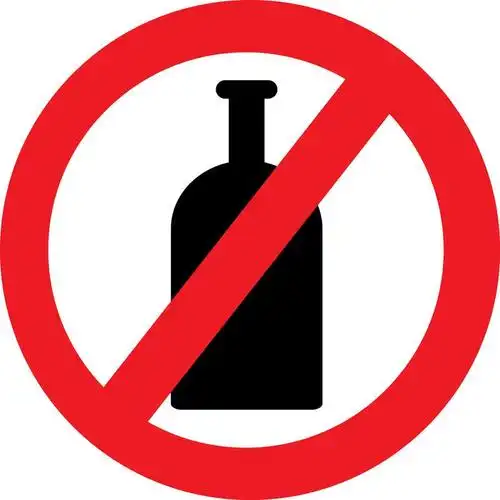The Hidden Link Between Alcohol and Sleep Apnea: Why Drinking Makes You Snore Louder
If you’ve ever been told that your snoring sounds like a freight train after a night of drinking, you’re not alone. For many, alcohol is a social lubricant or a way to unwind after a long day. But what most people don’t realize is that alcohol can significantly worsen snoring—and in many cases, it’s not just harmless noise. Loud, persistent snoring is often a sign of obstructive sleep apnea (OSA), a serious sleep disorder that affects millions worldwide. Understanding the connection between alcohol consumption and sleep apnea is the first step toward taking control of your health.
How Alcohol Affects Your Sleep
To grasp why alcohol exacerbates snoring, it’s important to understand how it influences your body during sleep. Alcohol is a central nervous system depressant, which means it relaxes the muscles throughout your body—including those in your throat and airway. While this might help you fall asleep faster, it comes at a cost. As the muscles in your soft palate, tongue, and throat relax excessively, the airway becomes narrower. This narrowing increases resistance to airflow, causing the tissues to vibrate more intensely—resulting in louder, more disruptive snoring.
But the problem doesn’t end there. For individuals with sleep apnea, this muscle relaxation can be particularly dangerous. Sleep apnea is characterized by repeated interruptions in breathing during sleep, often due to the collapse of the airway. Alcohol not only makes these collapses more frequent but also prolongs them, reducing oxygen levels in the blood and straining the cardiovascular system.

Snoring: More Than Just a Nuisance
Many people dismiss snoring as a minor inconvenience, but it can be a red flag for underlying health issues. Occasional snoring may be harmless, but habitual, loud snoring—especially when accompanied by gasping, choking, or pauses in breathing—is a hallmark symptom of obstructive sleep apnea. OSA is associated with a range of health problems, including:
- High blood pressure
- Heart disease
- Stroke
- Type 2 diabetes
- Daytime fatigue and cognitive impairment
When alcohol enters the equation, these risks are magnified. Studies have shown that consuming alcohol before bed can increase the frequency and duration of apnea events, even in people who do not typically suffer from sleep disorders. For those already diagnosed with sleep apnea, alcohol can undermine the effectiveness of treatments like continuous positive airway pressure (CPAP) therapy.
The Vicious Cycle of Alcohol and Poor Sleep
One of the ironies of alcohol consumption is that while it may help you fall asleep initially, it severely disrupts sleep quality later in the night. As alcohol is metabolized, its sedative effects wear off, leading to more frequent awakenings during the second half of the sleep cycle. This results in fragmented, non-restorative sleep, which can contribute to daytime sleepiness. To combat fatigue, some people may turn to caffeine or even more alcohol, creating a vicious cycle that further aggravates sleep issues.
Moreover, poor sleep can weaken impulse control and decision-making, making it harder to resist the temptation of alcohol. This bidirectional relationship means that breaking free requires conscious effort and a commitment to change.
Taking Action: Why You Should Quit Drinking Now
If you or your partner have noticed that snoring worsens after drinking, it’s time to take action. Here’s why quitting alcohol—or at least reducing consumption—can make a significant difference:
-
Improved Airway Function: Eliminating alcohol allows the muscles in your airway to maintain their tone, reducing the likelihood of collapse and vibration. This can lead to quieter nights and, more importantly, fewer breathing interruptions.
-
Better Sleep Architecture: Without alcohol disrupting your sleep cycles, you’ll experience more deep, restorative sleep. This means waking up feeling refreshed and alert, with improved mood and cognitive function.
-
Enhanced Treatment Efficacy: If you use a CPAP machine or other sleep apnea treatments, avoiding alcohol can help these interventions work more effectively.
-
Long-Term Health Benefits: Reducing alcohol intake lowers your risk of developing sleep apnea-related complications, such as hypertension and heart disease.
Practical Steps to Reduce Alcohol Consumption
Quitting alcohol doesn’t have to be an all-or-nothing endeavor. Even modest reductions can yield noticeable improvements. Here are some strategies to help you cut back:
- Set clear goals: Decide on specific limits for how much and how often you’ll drink.
- Avoid drinking close to bedtime: Allow at least three to four hours between your last drink and going to sleep.
- Explore alternatives: Replace alcoholic beverages with non-alcoholic options like herbal tea or sparkling water.
- Seek support: Talk to your doctor or a counselor if you’re struggling to reduce your alcohol intake.
Conclusion: Listen to Your Body
Snoring may seem like a harmless habit, but when amplified by alcohol, it can be a sign of something more serious. By paying attention to how your body responds to alcohol—and taking steps to moderate or eliminate its use—you can protect your sleep and your overall health. Don’t wait until sleep apnea takes a toll on your well-being. Take action today for quieter nights and brighter tomorrows.




发表评论